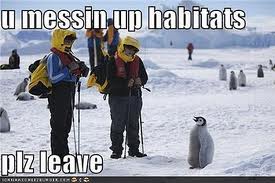
US reroutes flights around Alaska beach in attempt to avoid walrus stampede
An estimated 35,000 of the animals were spotted as summer sea ice fell to its sixth lowest in the satellite record

Walruses in the Chukchi sea this time of year are generally females and young who are at greater risk of being trampled. Photograph: Steven Kazlowski/Nature Picture Library
The plight of thousands of walruses forced to crowd on to an Alaska beach because of disappearing sea ice has set off an all-out response from the US government to avoid a catastrophic stampede.
The Federal Aviation Authority has re-routed flights, and local communities have called on bush pilots to keep their distance in an effort to avoid setting off a panic that could see scores of walruses trampled to death, federal government scientists told reporters.
Curiosity seekers and the media have also been asked to stay away.
An estimated 35,000 walruses were spotted on the barrier island in north-western Alaska on 27 September by scientists on an aerial survey flight.
The biggest immediate risk factor for the walruses now is a stampede – especially for baby walruses – but they have been facing a growing threat from climate change, the scientists said.
The extraordinary sighting – the biggest known exodus of walruses to dry land ever observed in the Arctic under US control – arrived as the summer sea ice fell to its sixth lowest in the satellite record last month.
“Those animals have essentially run out of offshore sea ice, and have no other choice but to come ashore,” said Chadwick Jay, a research ecologist in Alaska with the US Geological Survey.
Until 2007, it was unheard of for walruses to leave the sea ice for dry land for prolonged periods of time. But the retreat of sea ice has seen “drastic changes” in behaviour, Jay said. Walruses have struck out for beaches in six of the last eight years.
He said there was no doubt the migration – or “hauling out” as it is called – was caused by climate change.
“It is really a reduction in the sea ice that is causing the change in behaviour, and the reduction of sea ice is due to global warming,” Jay said.
But the immediate concern was to avoid a stampede – a leading risk factor for walruses when they crowd onto beaches and barrier islands.
The FAA is asking pilots to remain above 2,000ft and half a mile away from the walruses. Helicopters – a bigger risk to the walruses because they are noisier – have been asked to remain 3,000ft up and a mile away. News crews, which have been clamouring to film the walruses, have also been asked to stay away. “The government and local communities are respectfully asking you to leave the haul-out alone,” Joel Garlich Miller, a Walrus biologist with the US Fish and Wildlife Service, told reporters.
Walruses are naturally skittish animals, unused to being closely packed together. They also spend 80% of their time on water. Those in the Chukchi sea this time of year are generally females and juveniles and so at greater risk of being trampled to death.
“You have all these animals that are normally distributed on a flat surface. When they lose their sea ice habitat and come ashore in places that are accessible – like flat, sandy beaches – they gather in large numbers, and it becomes like a giant pig pile,” said Margaret Williams, managing director for the World Wildlife Fund’s Arctic program. “When they are disturbed it can cause stampedes in large numbers.”
Source: TheGuardian Read more





















Posted by Lois Field on October 5, 2014 at 4:13 pm
I’ve been hearing a lot of stories lately about the plight of animals due to climate change. This story is so sad. I hope everyone honors the request to avoid the area the walruses are in. In California bears are moving into residential areas in search of water due to the drought.
LikeLiked by 1 person
Posted by argentumvulgaris on October 5, 2014 at 10:00 pm
>Lois, I hope so too. You are right, everyday more stories come to light, and it’s so hard to fathom what we have done, and continue to do.
AV
LikeLiked by 1 person
Posted by lethally on October 5, 2014 at 5:39 pm
There are so many animal species affected by climate change and this is just one more of them. What to do? I don’t really know. I’m making as many changes as I can in my own life but I think we need to look at the bigger picture, ignore our “leaders” who aren’t leading at all on this issue, and just do what is right.
LikeLike
Posted by argentumvulgaris on October 5, 2014 at 10:03 pm
>lethally, our leaders are only interested in how fat they can make their wallets. Sympathy for wildlife doesn’t make money.
An example, stupid laws like banning clothes/washing lines, need to be ignored by everybody, and take the fight to the courts.
AV
LikeLiked by 2 people